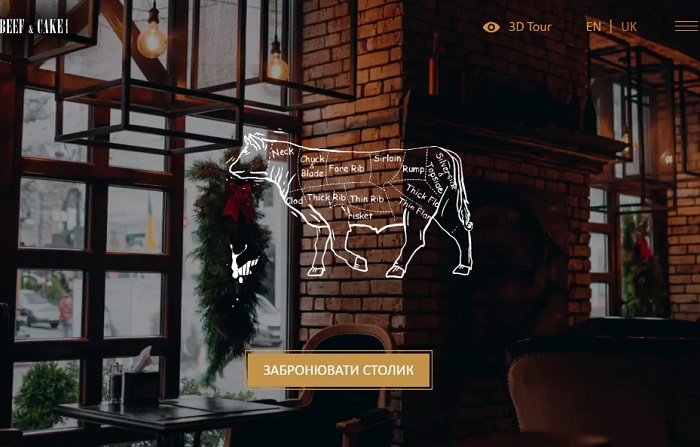In today’s digital age, having an online presence is crucial for any business, and the restaurant industry is no exception. A well-designed website can significantly contribute to the success and growth of a restaurant, helping it reach a wider audience, improve customer engagement, and increase revenue. Below, we explore why creating a website for a restaurant is essential and how it can benefit the business in multiple ways.
1. Enhancing Online Visibility
With millions of people using the internet to find dining options, a restaurant without a website is at a significant disadvantage. Potential customers often search for restaurants online before deciding where to eat. A website ensures that your business appears in search results, making it easier for customers to find you. By optimizing the site with relevant keywords and local SEO techniques, restaurants can attract more organic traffic and improve their online presence.
2. Providing Essential Information
A restaurant website serves as a digital storefront, offering vital information such as menu options, pricing, business hours, location, and contact details. Customers appreciate the convenience of accessing this information at any time. Moreover, featuring high-quality images of dishes, the ambiance, and special offers can entice visitors and encourage them to make a reservation.
3. Online Reservations and Ordering System
A functional website allows restaurants to integrate an online reservation system, making it easy for customers to book tables without the hassle of phone calls. Additionally, offering an online ordering system for takeout and delivery services enhances customer convenience and increases revenue. Many customers prefer ordering food online, and by providing this service, a restaurant can significantly boost its sales.
4. Strengthening Brand Identity
A website is an excellent tool for establishing and reinforcing a restaurant’s brand identity. Through unique design elements, a compelling story, and engaging content, the restaurant can create a memorable impression on visitors. A well-branded website builds trust and loyalty among customers, setting the business apart from competitors.
5. Showcasing Customer Reviews and Testimonials
Online reviews play a crucial role in a restaurant’s reputation. A website can include a dedicated section for customer reviews and testimonials, highlighting positive experiences. This feature helps build credibility and trust among potential customers, influencing their decision to dine at the restaurant.
6. Marketing and Promotion Opportunities
A restaurant website provides numerous marketing opportunities. By incorporating a blog section, restaurants can share updates, recipes, industry news, and upcoming events, keeping customers engaged. Social media integration also allows seamless sharing of promotions and special offers, encouraging customer interaction. Additionally, email marketing campaigns can be conducted through the website, offering exclusive deals to subscribers.
7. Cost-Effective Advertising
Traditional advertising methods, such as print media and TV commercials, can be costly. A website serves as a more affordable and long-term marketing tool. With effective SEO strategies, the website can attract continuous traffic without recurring expenses. Furthermore, paid digital advertising campaigns can be directed to the website, maximizing return on investment.
8. Gaining a Competitive Edge
Restaurants that invest in a professional website gain a competitive advantage over those that rely solely on social media pages. While platforms like Instagram and Facebook are valuable, they do not offer the same level of control and customization as a dedicated website. A well-structured website ensures a consistent online presence and a more personalized customer experience.
9. Offering a Loyalty Program
A website can be used to implement a loyalty program, encouraging repeat business. Customers can sign up for rewards, receive special discounts, and track their points online. This strategy not only retains customers but also fosters long-term relationships with them.
10. Adapting to Technological Trends
The restaurant industry is constantly evolving, and businesses must adapt to technological advancements. Features such as chatbots for customer inquiries, mobile-friendly designs, and AI-driven recommendations enhance user experience and streamline operations. Restaurants that leverage these technologies through their websites stay ahead of the curve and meet modern consumer expectations.
Conclusion
Creating a website for a restaurant is no longer optional—it is a necessity for business growth and sustainability. From enhancing online visibility and providing essential information to improving customer engagement and increasing revenue, a well-designed website plays a pivotal role in a restaurant’s success. Investing in a professional website ensures a strong digital presence and positions the restaurant for long-term success.
If you are looking to boost your restaurant’s online presence and attract more customers, Order a turnkey website for a restaurant today and take your business to the next level!







